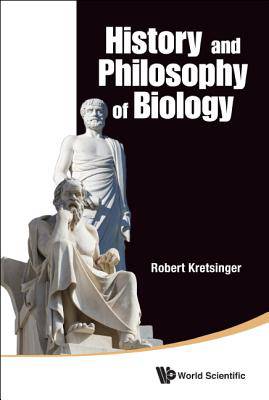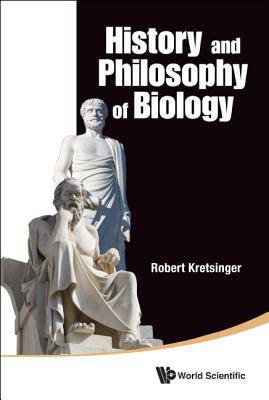
Door een staking bij bpost kan je online bestelling op dit moment iets langer onderweg zijn dan voorzien. Dringend iets nodig? Onze winkels ontvangen jou met open armen!
- Afhalen na 1 uur in een winkel met voorraad
- Gratis thuislevering in België vanaf € 30
- Ruim aanbod met 7 miljoen producten
Door een staking bij bpost kan je online bestelling op dit moment iets langer onderweg zijn dan voorzien. Dringend iets nodig? Onze winkels ontvangen jou met open armen!
- Afhalen na 1 uur in een winkel met voorraad
- Gratis thuislevering in België vanaf € 30
- Ruim aanbod met 7 miljoen producten
Zoeken
€ 149,95
+ 299 punten
Uitvoering
Omschrijving
History and Philosophy of Biology summarizes the major philosophical ideas that have attended the development of science in general and of biology in particular. The book then explores how the techniques and the concepts of the physical sciences have impacted biology. A reductionist approach to biology -- anatomy, physiology, genetics -- complements the study of evolution by natural selection and an ecological perspective. The final section of the book explores several examples of the influence of science on society, and of society on science.Each of 46 chapters of History and Philosophy of Biology has been or could be the topic of a major tome. The book is unique in that it explores the web of interactions among issues of philosophy, techniques and concepts of the physical sciences, fields of biology, and the diverse relationships between society and science.The book should appeal to readers of Scientific American or the New York Review of Books even if they are not trained biologists. It is a good text, or additional reading, for an advanced undergraduate course treating history and/or philosophy of biology or of science in general.
Specificaties
Betrokkenen
- Auteur(s):
- Uitgeverij:
Inhoud
- Aantal bladzijden:
- 364
- Taal:
- Engels
Eigenschappen
- Productcode (EAN):
- 9789814635035
- Verschijningsdatum:
- 16/06/2015
- Uitvoering:
- Hardcover
- Formaat:
- Genaaid
- Afmetingen:
- 150 mm x 235 mm
- Gewicht:
- 780 g

Alleen bij Standaard Boekhandel
+ 299 punten op je klantenkaart van Standaard Boekhandel
Beoordelingen
We publiceren alleen reviews die voldoen aan de voorwaarden voor reviews. Bekijk onze voorwaarden voor reviews.











